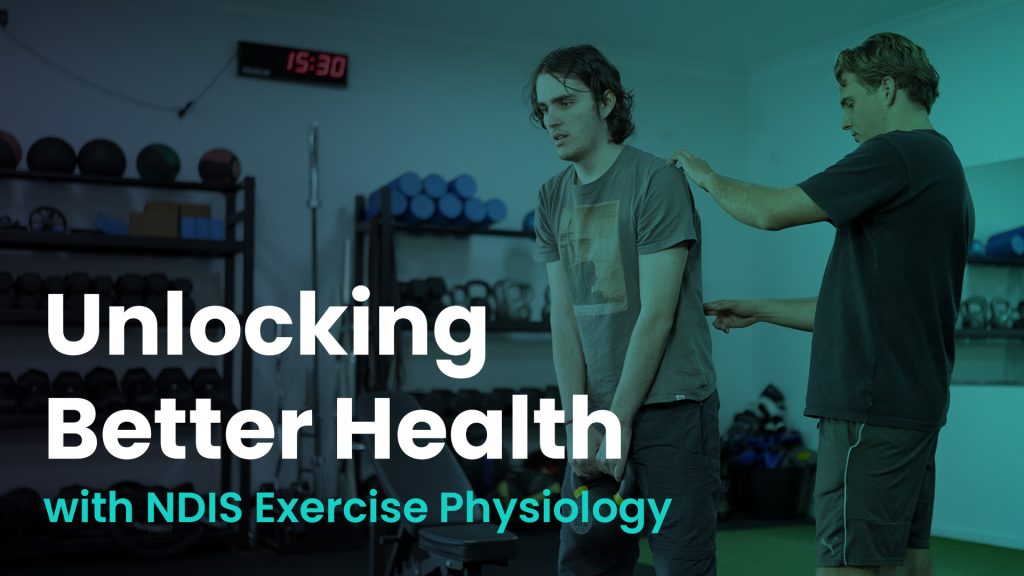
Navigating the National Disability Insurance Scheme (NDIS) can feel like a daunting task, but understanding the benefits it offers can open doors to improved health and wellbeing. One of the most valuable services available through NDIS is exercise physiology. This blog will explore how exercise physiology can significantly benefit NDIS participants, offering tailored support to enhance mobility, manage pain, and boost overall health.
What is Exercise Physiology?
Exercise physiology is a specialised field of healthcare that focuses on using exercise as a form of therapy. Unlike general fitness programs, exercise physiology involves a thorough assessment and a personalised exercise plan tailored to each individual’s needs and abilities. It is particularly beneficial for those with chronic health conditions or disabilities, as it takes into account the unique challenges and goals of each participant.
Benefits of Exercise Physiology for NDIS Participants
For NDIS participants, exercise physiology provides a range of benefits, including:
- Improved Mobility and Independence: Tailored exercise programs help strengthen muscles, improve joint function, and enhance overall mobility. This is particularly beneficial for participants with conditions affecting movement, such as multiple sclerosis (MS) or Parkinson’s disease.
- Pain Management: Chronic pain is a common challenge for many NDIS participants. Exercise physiology offers strategies to reduce pain through targeted exercises that strengthen muscles, improve posture, and increase flexibility.
- Enhanced Mental Health: Regular exercise is known to boost mood and reduce symptoms of anxiety and depression. For NDIS participants, exercise physiology can provide a structured way to incorporate physical activity into daily routines, promoting better mental health.
- Condition Management: For specific conditions such as acquired brain injury (ABI), exercise physiology offers a pathway to rehabilitation, helping to rebuild strength, coordination, and cognitive function over time.
Real-Life Benefits of NDIS Exercise Physiology
Consider John, an NDIS participant living with Parkinson’s disease. Through a tailored exercise program designed by a qualified exercise physiologist, John has experienced significant improvements in his balance and strength. Regular sessions have helped him manage his symptoms more effectively, reducing the risk of falls and enhancing his ability to perform daily activities independently.
Or take Sarah, who has been managing the effects of an acquired brain injury. With the guidance of an exercise physiologist, Sarah has regained much of her lost mobility and now enjoys a greater sense of independence and improved quality of life.
How to Access Exercise Physiology Services Under NDIS
Accessing exercise physiology services under the NDIS is straightforward if you know the steps:
- Check Your Plan: Ensure your NDIS plan includes funding for “Improved Daily Living” or “Improved Health and Wellbeing” categories, which cover exercise physiology.
- Get a Referral: While a referral isn’t always required, it can be beneficial to obtain one from your GP or specialist, particularly if they can provide specific guidance on your health needs.
- Find a Registered Exercise Physiologist: Look for a qualified, NDIS-registered exercise physiologist who has experience working with NDIS participants. They will conduct an initial assessment to understand your needs and goals.
- Develop a Personalised Plan: Your exercise physiologist will create a tailored program designed to help you achieve your goals safely and effectively.
- Regular Review and Adjustment: As you progress, your exercise physiologist will regularly review and adjust your program to ensure it remains aligned with your needs and objectives.
For more information regarding our NDIS Exercise Physiology service, click here.
Frequently Asked Questions
Q: What types of exercises are included in a typical exercise physiology program?
A: Exercise programs vary depending on individual needs but may include strength training, aerobic exercises, balance and coordination exercises, and flexibility training.
Q: How often should I see an exercise physiologist?
A: The frequency of visits depends on your goals and needs. Some participants may benefit from weekly sessions, while others might require less frequent check-ins.
Q: Is exercise physiology covered by NDIS funding?
A: Yes, if your NDIS plan includes funding for exercise physiology under the relevant support categories.
Exercise physiology is a powerful tool that can help NDIS participants improve their health, manage chronic conditions, and live more independently. Whether you’re looking to boost your mobility, manage pain, or improve your mental health, exercise physiology offers a personalised, supportive approach to achieving your health goals.
For more related information, we suggest having a read of the NDIS blog.
Ready to take the first step towards better health? Contact us today to schedule a consultation with our experienced exercise physiologists. Let’s work together to create a tailored exercise program that fits your needs and helps you achieve your goals!
